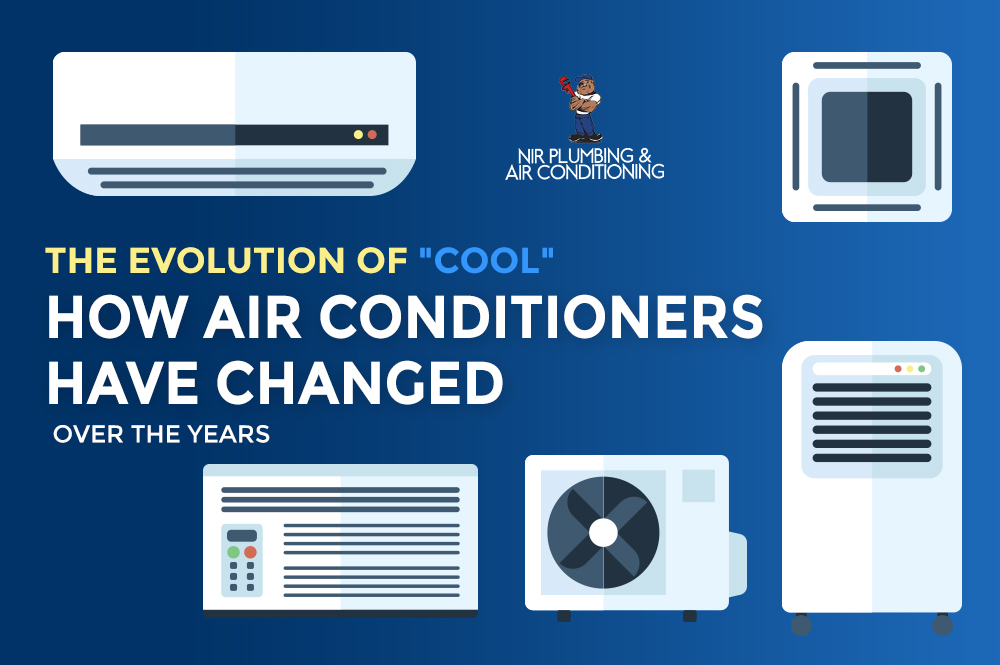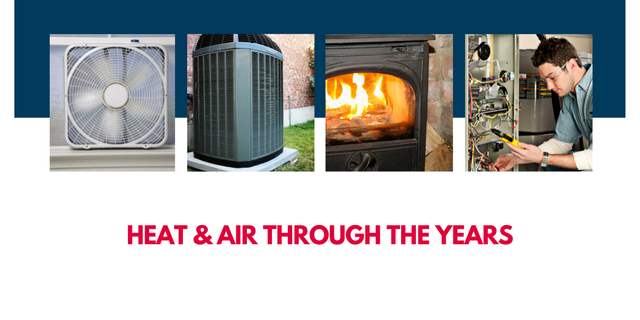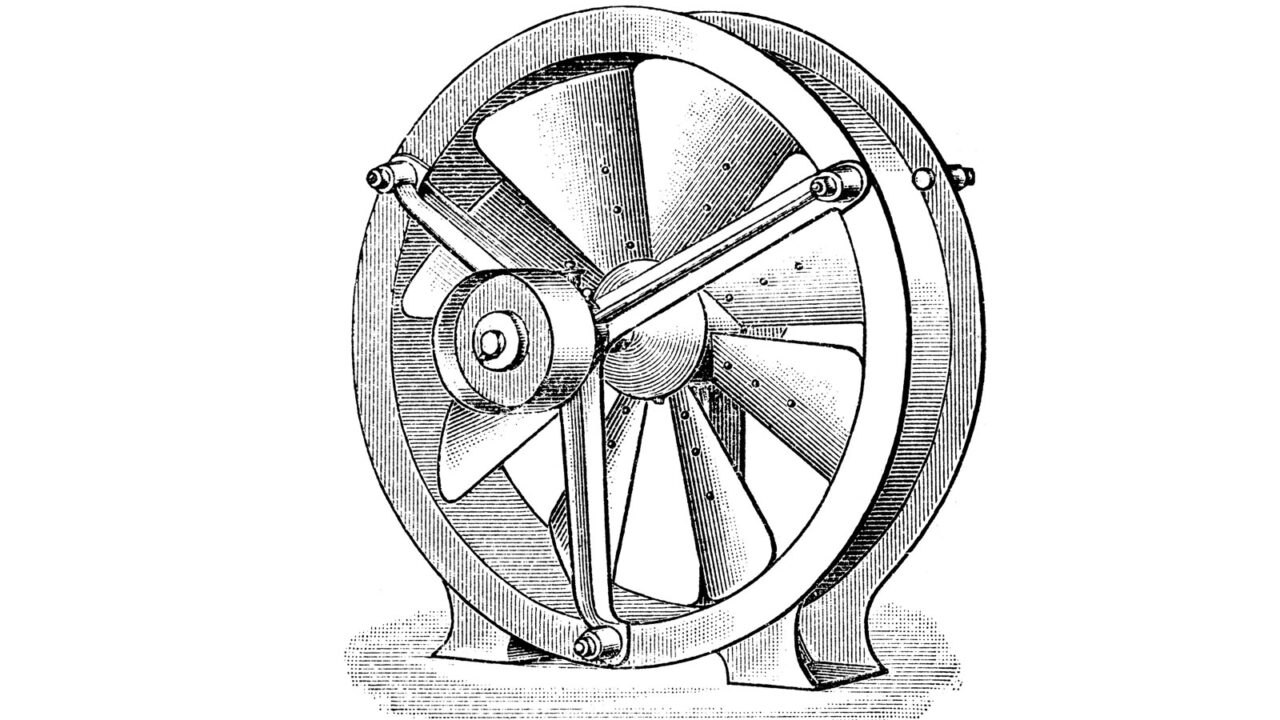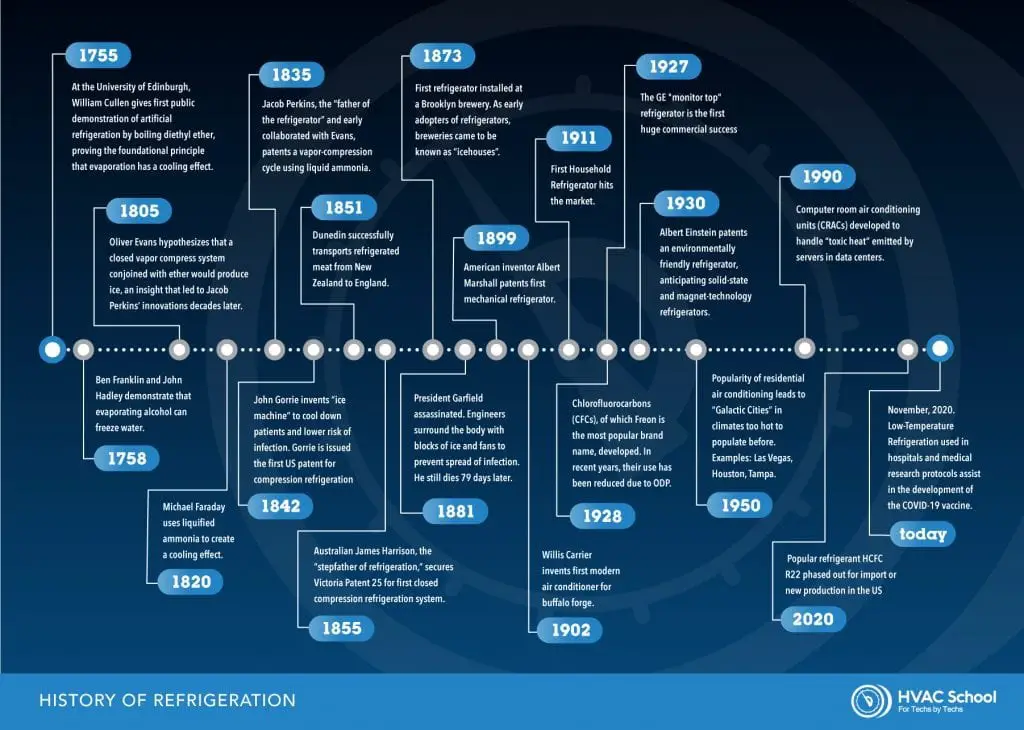HVAC was first invented in 1901 and has a rich history dating back to the Iron Age. From ancient Egyptian civilizations using air ducts for cooling to the modern innovations in heating, ventilation, and air conditioning systems, the evolution of HVAC has been marked by groundbreaking discoveries and advancements.
Throughout the decades, HVAC systems have continuously evolved to provide greater comfort and efficiency in both residential and commercial settings. The industry has witnessed significant transformations, from basic heating methods in early human civilizations to the sophisticated HVAC systems in use today.
Understanding the history of HVAC is essential to appreciating the technological progress that has revolutionized indoor climate control.

Credit: nirplumbing.com
Ancient Origins Of Climate Control
Discovering the ancient roots of climate control unveils the innovative ways ancient civilizations tackled temperature regulation challenges. From the strategic methods devised by early societies to the sophisticated advancements that pave the way for modern HVAC systems, exploring these origins offers insights into humanity’s quest for comfort and efficiency.
Early Methods Of Climate Control
In the journey of climate control, civilizations in antiquity employed creative ways to manage indoor temperatures. From utilizing passive techniques like shading and ventilation to strategic placement of buildings for natural cooling, early methods set the foundation for future HVAC innovations.
Recorded Use Of Hvac In Ancient Civilizations
The ancient Egyptians stand out as pioneers in the recorded use of HVAC systems. Implementing air ducts to circulate cooled air, they harnessed early forms of climate control to maintain comfortable living conditions within their dwellings.
Innovations Through The Ages
The history of HVAC is rich with innovations that have shaped the way we control indoor environments throughout the centuries. From the earliest recorded systems to the cutting-edge technologies of today, HVAC has evolved significantly to provide comfort and convenience.
The First Recorded Hvac Systems
In ancient Egypt, the first recorded use of HVAC systems dates back to the Iron Age. Egyptians employed an ingenious system of air ducts to cool their homes, setting the foundation for future developments in indoor climate control.
Evolution Of Hvac Throughout History
Throughout history, HVAC has undergone a remarkable evolution, adapting to the changing needs and technological advancements of each era. In early human civilizations, basic methods like open fires were used for heating before more sophisticated systems emerged.
Impact On Modern Living
Hvac In 20th Century
The 20th century marked the profound emergence of HVAC systems, revolutionizing the way people live and work. With the onset of industrialization and urbanization, the need for climate control in homes and offices became paramount. This led to the rapid development of heating, ventilation, and air conditioning technologies, laying the foundation for the modern comfort we enjoy today.
Revolutionizing Comfort In Homes And Offices
Let’s delve into how HVAC systems transformed living and working spaces. Prior to the widespread adoption of HVAC systems, ensuring comfortable indoor temperatures was a challenge. People relied on primitive methods such as open fires for heating and natural ventilation for cooling. With the advent of HVAC technologies, temperature regulation and air quality management became achievable, leading to improved health, productivity, and overall well-being.

Credit: www.aclmechanical.com
Pioneers And Contributions
The history of HVAC is rich with pioneers who made significant contributions to the industry. These key figures played a crucial role in shaping the innovations and breakthroughs that we enjoy today.
Key Figures In Hvac History
Several individuals are recognized as pioneers in the HVAC industry. Their groundbreaking work paved the way for the development of modern heating, ventilation, and air conditioning systems.
- Willis Carrier: Regarded as the “Father of Air Conditioning,” Willis Carrier invented the modern air conditioning system in 1902. His invention revolutionized the way we live and work, improving comfort and productivity.
- David Boyle: Known for his contributions to automotive air conditioning, David Boyle developed the first practical automotive air conditioning system in 1939. This innovation made driving more comfortable and paved the way for modern car air conditioning.
- Reuben Trane: Reuben Trane co-founded Trane Inc. in 1913 and pioneered innovations in heating systems. He introduced a new type of heating system that circulated warm air throughout a building, known as forced warm-air heating.
Innovations And Breakthroughs
The history of HVAC is marked by several significant innovations and breakthroughs that have shaped the industry as we know it.
- Central Heating: The invention of central heating in the 19th century brought effective heating systems to homes and businesses. This innovation allowed for more comfortable indoor environments, regardless of the weather outside.
- Air Conditioning: Willis Carrier’s invention of the air conditioning system brought relief from heat and humidity. The widespread adoption of air conditioning transformed not only our comfort but also industries such as food storage, medicine, and technology.
- Ventilation Improvements: Developments in ventilation systems, such as the use of air ducts and fans, have greatly improved indoor air quality. These innovations help to circulate fresh air, remove pollutants, and maintain a healthy and comfortable environment.
These key figures and innovations have significantly contributed to the evolution of HVAC systems, making them an essential part of our lives today. The continuous advancements in HVAC technology ensure that we can enjoy comfortable and healthy indoor environments year-round.
Challenges And Future Trends
As the HVAC industry continues to evolve, it faces a variety of challenges and future trends. From adapting to climate change to technological advancements, HVAC professionals must stay up-to-date with the latest developments in order to meet the changing needs of their customers and the environment.
Adapting To Climate Change
One of the biggest challenges for the HVAC industry is adapting to climate change. With rising temperatures and more extreme weather events becoming the new normal, HVAC systems need to be designed to handle these changing conditions. This involves creating more energy-efficient systems that can both cool and heat buildings efficiently, reducing the carbon footprint of HVAC systems, and utilizing renewable energy sources. It also requires HVAC professionals to stay updated on the latest codes and regulations related to environmental sustainability.
Technological Advancements In Hvac
Another major trend in the HVAC industry is the constant evolution of technology. HVAC systems have come a long way from their humble beginnings, and technological advancements continue to shape the industry. From smart thermostats and connected home systems to energy-efficient HVAC units and advanced controls, technology is revolutionizing the way we heat, cool, and ventilate our indoor spaces. These advancements not only improve the comfort and convenience of HVAC systems but also increase their energy efficiency and help reduce energy consumption and costs.
Some key technological advancements in HVAC include:
- Variable refrigerant flow (VRF) systems that allow precise temperature control and energy efficiency.
- Heat recovery ventilation systems that maximize energy efficiency by transferring heat between exhaust and fresh air streams.
- High-efficiency HVAC units that use advanced compressors, motors, and refrigerants to reduce energy consumption.
- Integrated building management systems that provide centralized control and monitoring of HVAC systems.
These technological advancements not only improve the performance and energy efficiency of HVAC systems but also provide opportunities for HVAC professionals to offer more advanced and customized solutions to their customers.

Credit: www.kingheating.com
Frequently Asked Questions On History Of Hvac
When Was Hvac Invented?
HVAC was invented in 1901 and has evolved since ancient times. The ancient Egyptians used air ducts to cool their homes.
What Did People Do Before Hvac?
Before HVAC, people relied on natural ventilation, fireplaces, and insulation to regulate indoor temperature and air quality.
How Long Has The Hvac Industry Been Around?
The HVAC industry has been around since the ancient Egyptian civilization, utilizing air ducts for cooling.
Who Discovered Hvac?
Willis Carrier is credited with discovering HVAC in the early 20th century, forever changing indoor climate control.
Conclusion
The evolution of HVAC systems has a rich history, dating back to ancient civilizations. It has continuously evolved to meet the changing needs of society. Understanding the historical development of HVAC helps us appreciate its impact on modern living. As we look to the future, it’s clear that HVAC will continue to play a crucial role in providing comfort and convenience.

